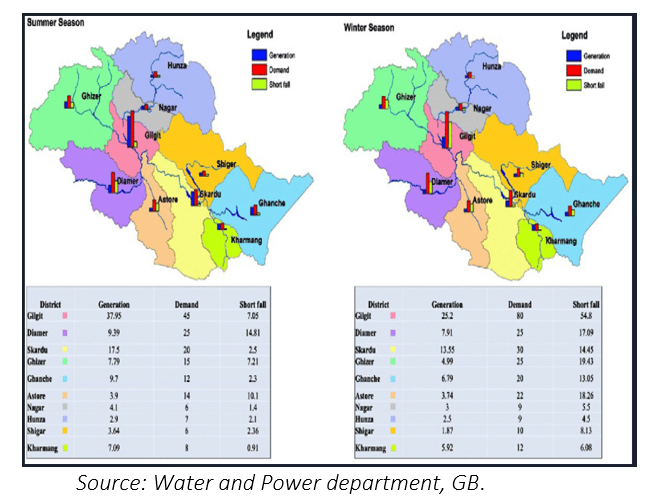INP-WealthPk
Muneeb ur Rehman
Being detached from the national grid due to geographical remoteness, Gilgit-Baltistan (GB) has been facing persistent energy shortages. Keeping this in view, the region’s government plans to promote an off-grid system of energy supply to its rural areas. Sharing the plan with WealthPK, Ghulam Mehdi, secretary for water and power, GB, said an off-grid electricity system was a self-contained power generation and distribution system that operates independently of the main power grid.
“Unlike the grid-tied systems, which are connected to the central grid, off-grid systems are designed to meet the electricity needs of a specific location without relying on external sources,” he explained. According to the GB water and power department, as of August 2023, the total installed hydropower capacity in the region was 169.35MW.

Mehdi said that many rural areas in the Gilgit district were not connected to the main grid due to the challenging geographical terrain. “This makes off-grid solutions a practical and cost-effective approach to provide electricity to these remote areas.” When asked about the expected projects that the regional government intended to start under the plan, he said the government was initiating projects for small-scale localised microgrids, which were well-suited to the dispersed populations and challenging topography of Gilgit. “These microgrids along streams will provide environment-friendly energy to small communities in different districts.”
In order to materialise the plan, the government had started engaging local communities in the process, he said, adding that the region experienced ample sunlight, making it suitable for solar power generation as well. While linking the GB government’s plan with the Sustainable Development Goals (SDGs) that the federal government has pledged to meet, Mehdi said access to energy was critical. He pointed out that the United Nations Sustainable Development Goal 7 aimed to ensure the need for affordable, reliable and sustainable energy by 2030. “Given the ongoing energy crisis and the environmental and economic limitations of relying on fossil fuel reserves, it is essential that provinces shift towards clean and renewable energy sources.”
He said access to reliable electricity would stimulate economic development in rural areas by supporting small businesses, promoting education and enhancing healthcare facilities. It is important to mention here that GB has the potential to harness its rich renewable energy resources to provide off-grid electricity to rural areas. Implementing sustainable and community-centered solutions will not only address the energy needs of the area but also contribute to the overall development and well-being of the local population.
Credit: INP-WealthPk













